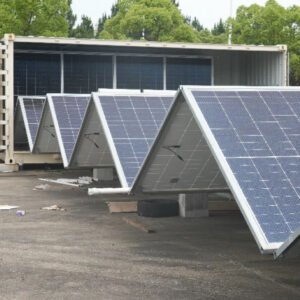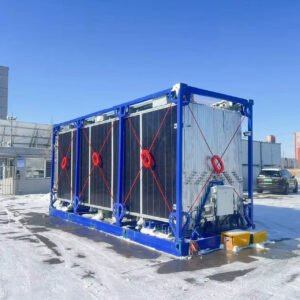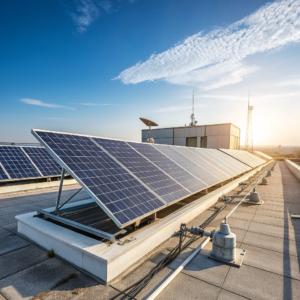Why High-Quality Inverters Are the Core Driving Force of Photovoltaic Systems?
•
Why High-Quality Inverters Are the Core Driving Force of Photovoltaic Systems?
Ever wondered how your solar panels consistently deliver power, rain or shine? The unsung hero is the inverter, silently ensuring optimal performance.
High-quality inverters[^1] maximize energy harvest, ensure grid stability, and extend system lifespan, making them indispensable for efficient photovoltaic systems.

But what exactly makes inverters so critical? Let’s dive deeper into their role, technology, and selection criteria to unlock their full potential.
The Role of Inverters in Stable Output and Grid Connection
What if your solar system couldn’t sync with the grid or handle voltage fluctuations?
Inverters convert DC to AC power while stabilizing voltage and frequency, enabling seamless grid integration and preventing power disruptions.
How Inverters Ensure Grid Compliance
- Voltage Regulation: Adjusts output to match grid requirements.
- Frequency Synchronization: Aligns with grid cycles (e.g., 50Hz/60Hz).
- Anti-Islanding Protection: Shuts down during grid failures for safety.
| Feature | Impact |
|---|---|
| MPPT Technology[^2] | Maximizes energy harvest from panels. |
| Reactive Power Control | Balances grid load and reduces losses. |
Advanced inverters even support bidirectional energy flow for hybrid systems.
Key Technologies to Improve Inverter Conversion Efficiency
Can a 1% efficiency gain really make a difference? For large-scale solar farms, it translates to megawatts of extra power.
Top-tier inverters use MPPT algorithms, silicon carbide (SiC) components, and thermal management to achieve >98% efficiency, minimizing energy loss.
Cutting-Edge Innovations
- SiC/GaN Transistors[^3]: Reduce switching losses and heat generation.
- Dynamic MPPT[^4]: Adapts to shading or panel degradation in real time.
- Cooling Systems: Passive/active cooling extends component lifespan.
Pro Tip: Look for inverters with CEC-weighted efficiency[^5] ratings—they reflect real-world performance better than peak efficiency.
How to Select the Appropriate Inverter According to the Project Scale
Should a rooftop system use the same inverter as a utility-scale solar farm? Absolutely not.
Match inverter capacity to system size: microinverters for residential, string inverters for commercial, and central inverters for utility projects.
Inverter Selection Guide[^6]
| Project Type | Inverter Choice | Advantages |
|---|---|---|
| Residential (3-10kW) | Microinverters | Panel-level optimization. |
| Commercial (50-500kW) | String Inverters | Cost-effective scalability. |
| Utility (1MW+)** | Central Inverters | High power density, low $/W. |
Caution: Oversizing inverters beyond 125% of array capacity can void warranties.
Conclusion
High-quality inverters[^1] are the backbone of PV systems, balancing efficiency, reliability, and scalability to unlock solar energy’s full potential.
[^1]: Explore how high-quality inverters enhance energy efficiency and system longevity in solar setups.
[^2]: Learn about MPPT technology and its crucial role in maximizing energy harvest from solar panels.
[^3]: Discover the benefits of using SiC and GaN transistors for improved efficiency and reduced heat in inverters.




